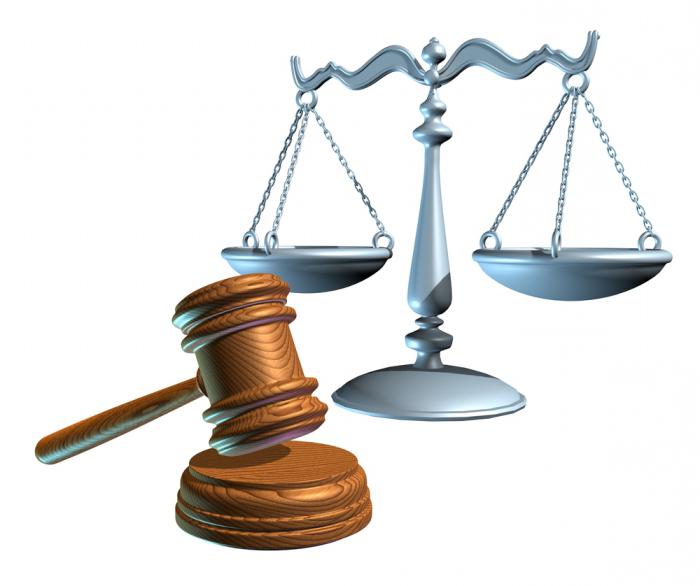In Russia, in recent years, an active anti-corruption policy has been pursued. What are the criteria for its effectiveness? What regulatory sources are adopted in the Russian Federation in order to combat corruption? How do modern researchers understand, in fact, the nature of this phenomenon?
What is corruption?
Corruption, according to a widespread definition, is a social phenomenon that denotes the actions of officials and other privileged persons within the framework of models outside the standards at the level of laws, industry norms and social principles, as a rule, causing material damage to the state, company, society. The concept of corruption, therefore, has a predominantly economic nature. A person performing the type of action under consideration is usually interested in material gain.
International interpretations
According to the definition adopted by the organization Transparency International, whose activity is focused on the study of corruption, the type of activity in question is understood as an abuse of a trusted resource - usually an imperious one, in the private interests. An interesting wording contains the Russian Federal Law "On Combating Corruption". It says that the phenomenon in question is an abuse of position and authority, giving or receiving a bribe, commercial bribery and other options for a citizen to illegally use his official position as opposed to the interests of society and the authorities with a view to profit. The Federal Law on Corruption, thus, somewhat expands the interpretation of the term in the TI version, supplementing it with the fact that the corresponding type of unlawful acts can be carried out not only by the authorities, but also by business.

The definition of corruption adopted by the UN looks different; it is a rather general wording. According to UN documents, corruption is understood as a phenomenon that has a complex social, cultural, as well as economic nature, present in all states. Some experts draw attention to the fact that even in the content of the UN Convention against Corruption, there is no concrete definition of the phenomenon under consideration. Although, according to some analysts, there is some logic here - the nature and causes of corruption are so multifaceted that even at the level of one of the largest international structures, it makes no sense to look for a general definition of this phenomenon. In each country of the world, there may be precedents that allow it to be interpreted within the framework of concepts that may be completely dissimilar to those adopted in other states. Therefore, some experts believe that a common understanding by the world community of the problems, the emergence of which is caused by international corruption, can be complicated. And all because there are no guidelines for finding a unified approach to the interpretation of this phenomenon.
The nature of corruption
Having examined the concept of corruption, we will study the vision of the causes of this phenomenon that can be found in a research environment. There are, for example, theories of economic nature. Among them - the thesis of correlation of profits and costs due to some activity. In this case - corruption. A person who has a certain administrative resource, for example, decides to commit illegal actions, realizing that there are risks, but at the same time realizing that their expected benefits are likely to compensate. If, in turn, a given citizen does not carry out any corruption acts and continues to perform his functions as usual, then the preferences and degree of satisfaction with his work will be significantly lower than even after the punishment in the first scenario.

Some researchers also associate the causes of corruption with the theory of the formation of a behavioral model, which is based on the factor of obtaining preferences due to rent. What does it mean? The fact that in the process of carrying out his activity, a person who is, relatively speaking, in an administrative post, realizes that in his hands there is a fail-safe tool in most cases for deriving profit and benefits from his official position. This factor, analysts say, can lead to even deeper corruption than in the first scenario, which provides for the economic nature of illegal actions. Since in most cases the risks of a person sitting on a "rent" involve relatively small risks. So, for example, corruption in the internal affairs bodies, experts believe, can be largely explained by the influence of the factor under consideration.
There is a thesis explaining the phenomenon under study in terms of the crisis of economic and social institutions in the state. The causes of corruption are caused by the inefficiency of government and business. That is, for example, it becomes easier for a citizen to solve a particular issue (agree on a document, order a product or service), bypassing the regular mechanisms set forth in laws or industry agreements. At the same time, the official or employee of the company responsible for the approval of the document, the release of the product or the provision of services rarely agrees to promote an informal resolution of the issue free of charge. And therefore, he, one way or another, becomes a violator of laws and norms, damaging the authorities, business and society.
The reason for corruption in Russia
According to studies of the same Transparency International, in our country the level of public perception of this phenomenon remains high. The positions of the Russian Federation in the corresponding rating compiled by this organization are below the hundredth place. It should be noted - regarding the correlation of how corruption is accepted by society and what is its real level in Russia, experts are actively discussing. That is, it may well turn out that with a possible change in the research methodology, the ratings of the Russian Federation will be more optimistic. But few argue with the fact that, as such, corruption still exists in Russia, as in any other country in the world. Even those that lead in ratings compiled by TI and other organizations.
What are the causes of corruption in Russia? Some analysts consider all three theses stated above, which explain the nature of this phenomenon, applicable to our country. In addition, experts say, there are other causes of corruption in Russia - more of a national nature. Consider them.
According to one of the common versions, the causes of corruption in our country should be sought in the traditions accepted in society, as well as in the logic of the political and socio-economic development of the country.

The fact is that historically Russia is a state in which the institution of law in the form in which it is adopted in Western countries has not been perceived by citizens for a long time. The Russian man preferred to live by justice, and not according to the written laws. In an extreme case - agreed to a court. But not according to the letter of paper rules. In Soviet times, researchers say, this public attitude has somewhat changed. Significant government intervention in the life of society and the economy led to the publication of a large number of regulatory norms, regulations, expanded the legislative framework. As a result, Soviet people more or less began to get used to living according to the law. By virtue of the party’s authority, backed by sufficiently high economic results and the country's stable position in the international arena, Soviet citizens preferred not to violate the norms prescribed by the state. Therefore, the level of corruption in the USSR, according to many researchers, was low. Such phenomena, of course, were (at least at the level of the shadow economy), when certain material resources were distributed outside state channels, the only officially acceptable ones. But the systemic nature of the corruption problem in the USSR, as many analysts believe, still did not. However, there is a version that in Soviet times, the authorities still did not need to completely take the economy under their control. Private enterprise, experts say, should have been allowed - at least in the simplest forms. This would make the adaptation of many categories of citizens of the country to the new realities that came during the years of Perestroika much more gentle.
When the Soviet Union entered the crisis phase of development, with which it is customary to identify Perestroika, the authority of the state and the party began to decline steadily. The economic factor also played a role - people's living standards fell. In terms of politics - domestic, international - the state has substantially lost ground in its positions. As a result, people began to return to the "traditional" perception of politics, social processes, business - outside the standards of law - when you need to act on a piece of paper.
The main causes of corruption in Russia are, therefore, a sharp, accompanied by unpreparedness of society and, to a large extent, political power, transition from one state model to another, as well as some historical traditions. The considered phenomenon, experts believe, is prone to growth in almost any country where the corresponding transformations occur. Corruption is not bypassing, analysts say, also developed countries, many of which are currently experiencing credit and financial problems, as a result of which they are considering revising the existing concepts of economic development, which means that they are also in a stage of some transit. However, in Russia, as you know, not only the economic, but also the political system has changed. As a result, the contrast between the concepts of governance and development is much greater than in Western countries, and the dynamics of corruption growth (as a result) are higher.
Corruption Incentives
Experts identify factors that to some extent impede the implementation of anti-corruption measures and at the same time affect the aggravation of the corresponding problem. First of all, this is an imbalance in the interests of government and business in the non-resource sectors. Difficult conditions for doing business: a high level of government intervention, difficult access to loans - make it possible for businesses to seek additional preferences due to corruption activities.
Another problem is the lack of, in the opinion of a number of analysts, state interest in the fact that the very “tradition” that has been characteristic of Russians historically is replaced by a high legal culture. And therefore, society cannot always select mechanisms for interacting with the authorities, alternative to those that are characteristic of many areas of the socio-political and economic development of the country today.
However, in the 2000s, the socio-political and economic situation in the Russian Federation stabilized. In terms of the quality of life of citizens and activities in the political arena, Russia has largely restored the positions achieved under the USSR. However, the problems of corruption in the Russian Federation remained. This is connected, the researchers believe, with the incompleteness of a full-fledged economic transit - the transition of Russia from a socialist development model to a predominantly capitalist one. Mostly, analysts say - in terms of the quality of legislation, as well as the effectiveness of political and public institutions. The Soviet principles of political governance and legal registration of various kinds of legal relations are outdated. Legislation in the field of business was developed almost from scratch - there was no private entrepreneurship in the USSR for several decades. As a result, society, power, and business in a number of areas began to develop through trial and error, a side effect of which was corruption.

However, in recent years, as some experts believe, the situation began to improve. First of all, the legislative base was improved, and reforms were carried out in a number of power institutions. Consider the legal aspect in more detail. The problems of corruption, as we noted above, in modern Russia are largely due to the long crisis of regulatory regulation of key public institutions.
Anti-corruption legislation of Russia
What sources of law can you pay attention to? One of those we have already noted above is the Federal Law of the Russian Federation on Corruption. But it is not the only normative legal act and the source of the implementation of the relevant directions in politics in the organizational aspect. Before a full-fledged RF law on corruption appeared, the authorities developed a national strategy to counter the phenomenon under consideration. Another important source is the national plan for 2014-2015, which also provides for the work of state institutions in the fight against corruption. We study the general information about the marked legal acts.
Anti-corruption and Federal Law
Historically, the very first source is the Federal Law on Corruption, adopted on December 25, 2008. It is considered to be the fundamental regulatory act in the Russian Federation, which establishes key principles aimed at counteracting the phenomenon under consideration, as well as the organizational basis for preventive measures against it. Also, this corruption law includes provisions aimed at eliminating the possible consequences of the corresponding type of offense.
Anti-corruption as part of the national strategy
Another major legal act is the National Anti-Corruption Strategy. In terms of status, it is a decree of the President of the Russian Federation. This document was signed on April 13, 2010. It is described by lawyers as a more software source, the wording of which is aimed at eliminating the key factors that form the basis for corruption in the country. It is assumed that the provisions of the National Strategy will be concretized over time, based on objective socio-political and economic realities. This policy document reflects anti-corruption aspects at all levels of government - federal, regional, municipal.
Anti-corruption in the framework of the national plan
Supplements the law on corruption, as well as the program document discussed above, the National Plan of the corresponding orientation. It was adopted on April 11, 2014. This is one of the newest sources of anti-corruption orientation. The national plan, like the strategy, has the status of the Decree of the President of the Russian Federation.
Lawyers characterize it as a source designed to become an effective tool for the implementation of the strategy of the same name. It is assumed that this document will consolidate the list of acts aimed at combating corruption, determine the specific persons responsible for their implementation, as well as methods for the practical implementation of activities carried out for the corresponding purpose.
Russian anti-corruption policy: performance criteria
How effective is the current anti-corruption policy pursued by the Russian authorities? The opinions of experts on this issue vary greatly. There are those who believe that the legislative aspect of public policy alone is not enough. Even if the law contains a certain article on corruption and envisaged measures of responsibility, this fact, experts believe, very indirectly affects the systemic causes of the phenomenon in question.
It is necessary to work actively not only in the direction of lawmaking, but also to pay attention to the upbringing of new values in society, as well as, what is equally important, the training of managerial personnel for whom corruption will not be held in high esteem. Thus, a measure to limit illegal actions should be not only the article on corruption provided for in laws, but also models of public behavior that encourage some citizens to interact with compatriots, government agencies and entrepreneurs within the framework of the rule of law.

A significant amount of work, analysts believe, also lies in business. Private companies account for a significant percentage of Russian employers, which means that they significantly influence society through internal corporate mechanisms. Economic corruption in the forms that are characteristic of businesses can be significantly reduced if companies begin to cultivate views among their own employees that contribute to resolving issues of interaction in the private sector, as well as with government agencies in a legal vein. The success of business policy in this direction, experts say, will positively affect trends that reflect the perception of corruption by society as a whole.